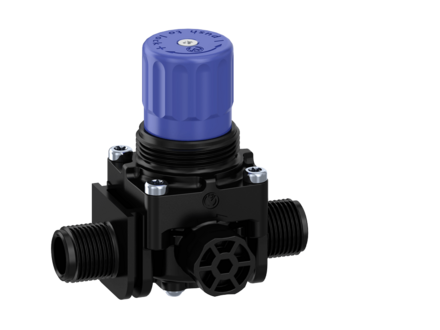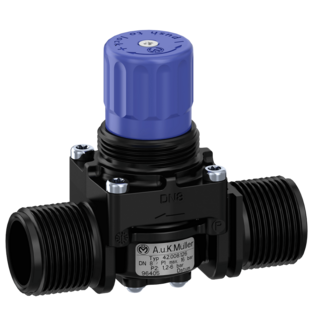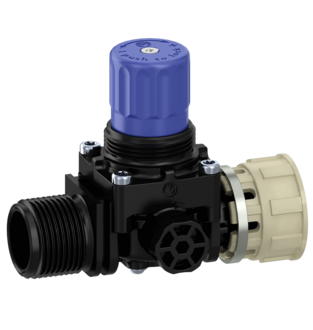T&P Valves, Valves & Controls, Hydronics & Plumbing - t and p valve
Pressureregulator

The real estate sector contains all REITs (with the exception of the mortgage REITs) as well as real estate management and development companies. This sector performs strongest in the early phase of the economic cycle.
Typically, this sector doesn't perform well at the beginning of the economic cycle, mostly because utilities are considered a more defensive investment as returns are less sensitive to changes in the business cycle. As the cycle tips back towards recession, the utilities sector may be somewhat resistant to downturns in the market. Similar to the telecom sector, many utilities offer relatively high dividend yields.

Waterpressureregulator
Important legal information about the email you will be sending. By using this service, you agree to input your real email address and only send it to people you know. It is a violation of law in some juristictions to falsely identify yourself in an email. All information you provide will be used solely for the purpose of sending the email on your behalf. The subject line of the email you send will be “Fidelity.com”.
A. u. K. Müller Shanghai Rm26D, Huadu Mansion, Zhangyang Rd. 838, Shanghai, 200122, China Telefon: +86 21 58 20 40 80 Telefax: +86 21 58 20 42 12 E-Mail: info(at)akmueller.de
Regulating valve
A. u. K. Müller GmbH & Co. KG Dresdener Straße 162 D - 40595 Düsseldorf Telefon: +49 211 73 91-0 Telefax: +49 211 73 91-281 E-Mail: info(at)akmueller.de
The utilities sector contains companies that provide gas, electric, or water services, along with companies that independently produce and distribute power.
Closely related to the information technology sector, telecommunication services contains companies that provide telecommunications services through fixed line, fiber optic, wireless, cellular, and high bandwidth networks.
It's very important to remember that the risks and benefits of investing in any individual sector will change markedly over time. Each phase in the business cycle presents unique opportunities for well-positioned industries and risks for those that are worse off. By understanding the makeup of each industry, the products and services provided, and how the companies in each sector react to the business cycle, investors have a better chance of minimizing risks while maximizing potential rewards.
The basic materials sector contains a wide variety of commodity-related manufacturing companies. This includes companies that make everything from paper to steel, minerals and mining companies, as well as fabricators of construction materials.
A. u. K. Mueller is associated with more than 60 years of experience in solution-centered development and production of solenoid valves, control valves and special valves, standing for reliability and quality "Made in Germany".
The pressure regulator converts variable inlet pressures into a lower, constant outlet pressure. It can be used to protect equipment from high or inconsistent incoming medium pressure. Due to the reduced outlet pressure, which acts against an orifice plate, the flow rate can also be set in a defined manner and is largely independent of the inlet pressure within the specified setting limits. This benefits units that require a constant supply or are to be filled with a defined volume in a time-controlled manner. Pressure reducers with a fixed back pressure are also available as an option. To ensure operation and long reliability of the pressure regulator it is recommended that a dirt strainer is fitted to the inlet. Check valves or solenoid valves can be placed downstream of the regulator. The hydraulic functionality according to DIN EN 1567 is confirmed by an accredited laboratory. Furthermore, WRAS and SVGW approved versions are available.
We fulfill international accepted standards and requirements of national and international certification bodies. The certification of product often enables us the entry to particular markets.
This sector generally performs well during the early phases of the business cycle, since it is thought to be more economically sensitive than other, more defensive sectors.
The health care sector contains distributors of health care products, providers of basic health care services, owners and operators of basic health care facilities and organizations, as well as those involved in the research, development, production, and marketing of pharmaceuticals and biotechnology products, and manufacturers of health care equipment and supplies.
Like the consumer staples sector, health care stocks are viewed as more defensive investments compared with more cyclically sensitive industries. These shares may be attractive to investors as the economy heads into recession, since consumers are less likely to cut back on health care expenses during times of economic stress.
These companies tend to perform well early on in a recovery, since they are sensitive to interest rates and consumer spending. Conversely, they tend to lag the broader market during times of economic slowdown as consumers begin delaying large purchases.
This sector has generally performed well early in the business cycle because it has more economic sensitivity than many other sectors. Certain sub-industries in this industry—like software, computers, and peripherals—have historically outperformed during periods of expansion.
A.K. Muller (UK) Ltd. Unit 4, Brookside Business Park Brookside Avenue, Rustington GB - West Sussex BN16 3LP Tel: +44 1903 788 888 Fax:+44 1903 785 817 E-Mail: valves(at)akmuller.co.uk
Similar to the energy sector, the materials sector is highly correlated to the price of commodities. Whereas energy stocks are sensitive to the price of energy resources, materials stocks are sensitive to the price of metals such as gold, copper, and steel. This sector tends to be a strong performer at the beginning of an economic recovery, in part because its financial performance tends to be more economically sensitive. Basic materials companies may weaken as the business cycle progresses from sharp recovery to stable expansion.
These firms can be somewhat resistant to downturns in the business cycle. For this reason, the consumer staples sector is thought of as being more defensive compared with other, more cyclically sensitive sectors.
A.K. Müller France 10 Avenue du Gué Langlois Z.A.E du Gué Langlois F-77600 Bussy Saint Martin Telefon: +33 1 64 62 95 14 Telefax: +33 1 64 62 95 12 E-Mail: info(at)akmuller.fr

Butterfly valve
The consumer discretionary sector contains industries that tend to be very sensitive to economic cycles. It is organized into 2 segments: manufacturing and services. Between these 2 segments, the sector contains businesses ranging from hotels, restaurants, and leisure facilities, to automotive manufacturing, household durable goods, and textile manufacturing.
Since the performance of these companies is typically a little less sensitive to changes in the business cycle, they tend not to perform as well as other sectors early on in a recovery. They are more likely to hold value as the economy tips into recession, however, since their businesses are generally more predictable. Also, many telecommunication services firms offer relatively high dividend yields.
PressureReducing Valve
Stocks in this sector are highly correlated to the price of commodities such as crude oil and natural gas. The energy sector is cyclical in nature and is sensitive to changes in consumer demand.
PRV valve
The financials sector contains banks, thrifts and mortgage finance, diversified financial services, mortgage REITs, consumer finance, capital markets, and insurance.
It can be daunting to try and classify the world's businesses, given that there are around 60,000 publicly traded companies in the world.* Each has unique assets, liabilities, and strategic goals.
The information technology sector includes companies that manufacture personal computers and produce software. Additionally, there are semiconductor manufacturers and information technology services companies.
pressureregulator中文
Because these stocks are more sensitive to changes in interest rates and the broader economic climate, they will tend to do well at the beginning of the business cycle, and may weaken as the economy heads into recession.
The energy sector contains companies that produce, market, refine, and transport consumable fuels, and companies that are engaged in the construction of energy-related equipment or services.
The industrials sector is mostly made up of companies involved in the manufacturing and distribution of capital goods, transportation services, or the provision of commercial services and supplies. Accordingly, the sector contains businesses that range from defense contractors to airlines and construction firms.
The consumer staples sector is generally thought to be less sensitive to economic cycles than other sectors. It includes manufacturers and distributors of personal products and non-durable household goods, as well as beverages and tobacco. Food and drug retailers are in this sector as well, along with some consumer super centers.
Though there is no perfect method for classification, the Global Industry Classification Standard (GICS) is one of the more widely used methods. GICS breaks out the world's companies into the 11 highest level categories, described in greater detail below. These 11 sectors are broken down further into 25 industry groups, 74 industries, and 163 sub-industries. This method concentrates on grouping companies based on their primary business activity.




 8615510865705
8615510865705 
 8615510865705
8615510865705